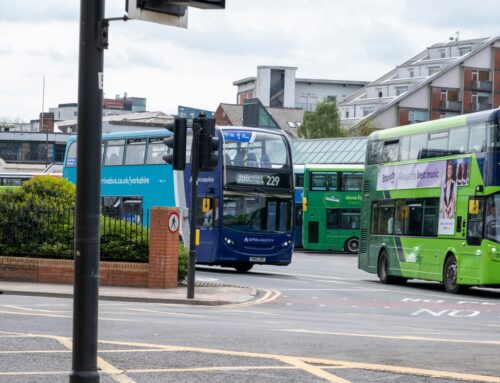Government investment amounting to £47.5 million has been announced for improvements to help make 27 of the most dangerous roads in England safer, in areas ranging from Newcastle upon Tyne to the Isle of Wight.
The Department for Transport (DfT) said that the funding injection through the third round of the Government’s Safer Roads Fund would drive forward safety improvements such as redesigned junctions and enhanced signage and road markings.
The DfT said that the programme would lower the risk of collisions on the improved roads, preventing more than 750 fatal and serious injuries over the next two decades, and bringing about a £420 million benefit to society.
In a separate development, the Government also announced that all new smart motorways would be removed from its road-building plans – a move that it attributed to inflation-related financial pressures and a lack of confidence in smart motorways among drivers.
Building on work the Safer Roads Fund has already helped make possible
The Department said that as part of the fund, the Government was “continuing to deliver a wide range of improvements across all roads, while working with local authorities and safety groups.”
According to the Government announcement of the most recent provision of funding, £100 million has already been unleashed through the programme to improve England’s 50 most dangerous roads, with rural roads accounting for the majority of these.
Some of the road improvements made to date include enhanced signage, safer pedestrian crossings, and better-designed junctions.
Transport Secretary Mark Harper commented, coinciding with the latest release of funding: “Britain’s roads are some of the safest in the world, but we are always looking at ways to help keep drivers and all road users safe.
“We’re injecting £47.5 million so that local councils around the country have the support they need to keep everyone safe, while reducing congestion and emissions and supporting local economies.”
Which schemes around the country are benefitting from the third-round funding?
The Government said that the allocation of the third-round funds to 27 different schemes was based on data that the Road Safety Foundation had independently surveyed and provided.
The data analysed provided insight into road safety risks, taking into account figures in relation to those killed and injured, alongside traffic levels.
Early estimates that the £47.5 million investment should prevent approximately 760 fatal and serious injuries over the coming 20 years arose from Road Safety Foundation analysis.
The Government added that once the whole life costs of the schemes had been factored in, the overall benefit cost ratio of the investment was estimated at 7.4. This means that for every £1 investment, a societal benefit of £7.40 would be delivered.
Included among the 27 schemes in the latest round of investment were roads in such local-authority areas as Blackpool, Bournemouth, Essex, Hampshire, Hull, Isle of Wight, Newcastle upon Tyne, Nottingham, Oxfordshire, Sheffield, Southampton, Southend-on-Sea, Warwickshire, and Wiltshire.
No new smart motorways will now be built
The Department also recently confirmed that plans for new smart motorways in the UK would be cancelled, although £900 million in safety improvements will still be made to existing smart motorways.
The news means that smart motorways set for construction during the period of the third Road Investment Strategy (2025-30), as well as previously paused schemes, will not now proceed.
According to the Government, initial estimations suggested that the cost of building future smart motorway schemes would have exceeded £1 billion. It said that the cancellation of these plans would allow more time to track public confidence in smart motorways over an extended period.
Safety has been a key topic of concern about smart motorways. Critics have said that these roads’ use of the hard shoulder as an additional lane of traffic has led to road deaths.
Smart motorways currently make up about 10% of the motorway network in England. The news of future schemes being cancelled follows Prime Minister Rishi Sunak having pledged to ban smart motorways during his summer campaign for the Conservative Party leadership.
Benefit from the expertise of our highly capable transport consultants
It will, of course, need to be seen in time whether the planned improvements to the targeted roads in the aforementioned areas will deliver the extent of the benefits promised.
Nonetheless, many transport consultants and their clients will be heartened by the news, bearing in mind positive effects the work could have in making the UK’s highways more pleasant and safer to use.
To find out more about the difference our own transport consultants could make to your efforts to optimise your transport infrastructure projects, please do not hesitate to reach out to your nearest Transport Planning Associates (TPA) office.




